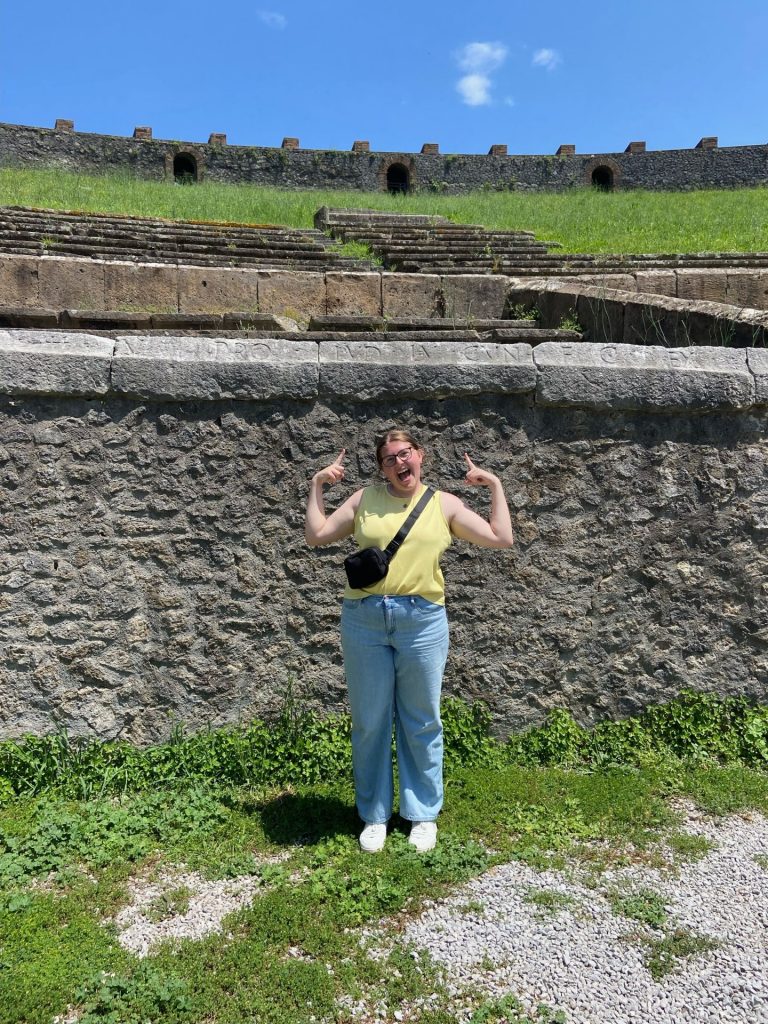Scholarship recipient Lillian Ridinger was born and raised in Normal and is majoring in history social-science education with a classical studies minor.
Ridinger was one of 19 students selected for the FIREbird research grant in summer 2023. These grants support students in faculty-mentored, independent research experiences with up to $3,000 in funding for salary, research materials, or for travel to conduct research.
Ridinger’s biggest highlight while at ISU involves studying abroad in Italy for the past two summers.
“I had the opportunity to go the summer after my sophomore year for an archaeological field school and then I went back with the FIREbird grant to work on a research project at the same dig site as the previous year,” shared Ridinger. Looking back at her early mornings while in Italy, Ridinger recalls listening to “Dove e quando” by Benji and Fede, a song she recommends to others
Another of Ridinger’s highlights is her involvement in the registered student organization Independence Service Dogs, where she fosters and trains future service dogs. Finally, after joining Latin Club on campus her sophomore year, she currently serves as the president of the organization. Ridinger continues to meet other students in the classical studies program and together they have actively worked to grow the organization.
Ridinger is currently taking mostly major classes. Her independent study focuses on continuing her research from this past summer. She’s also taking a GIS class to learn more about the program she utilized over the summer. Ridinger also serves on the executive boards of Indy-pendence Service Dogs and Womens History Club. In between all of her academic responsibilities, Ridinger is also a student worker at the Rayfield Archives.
On the impact of the FIREbird grant, Ridinger said, “Receiving this grant allowed me the opportunity to take something that I really fell in love with from my classes at ISU and to do more with it then I thought would be possible. It gave me a chance to learn how to apply the skills I had learned in class into a real research situation and learn so much more with hands on work and experience then I could’ve received without having that experience.”

